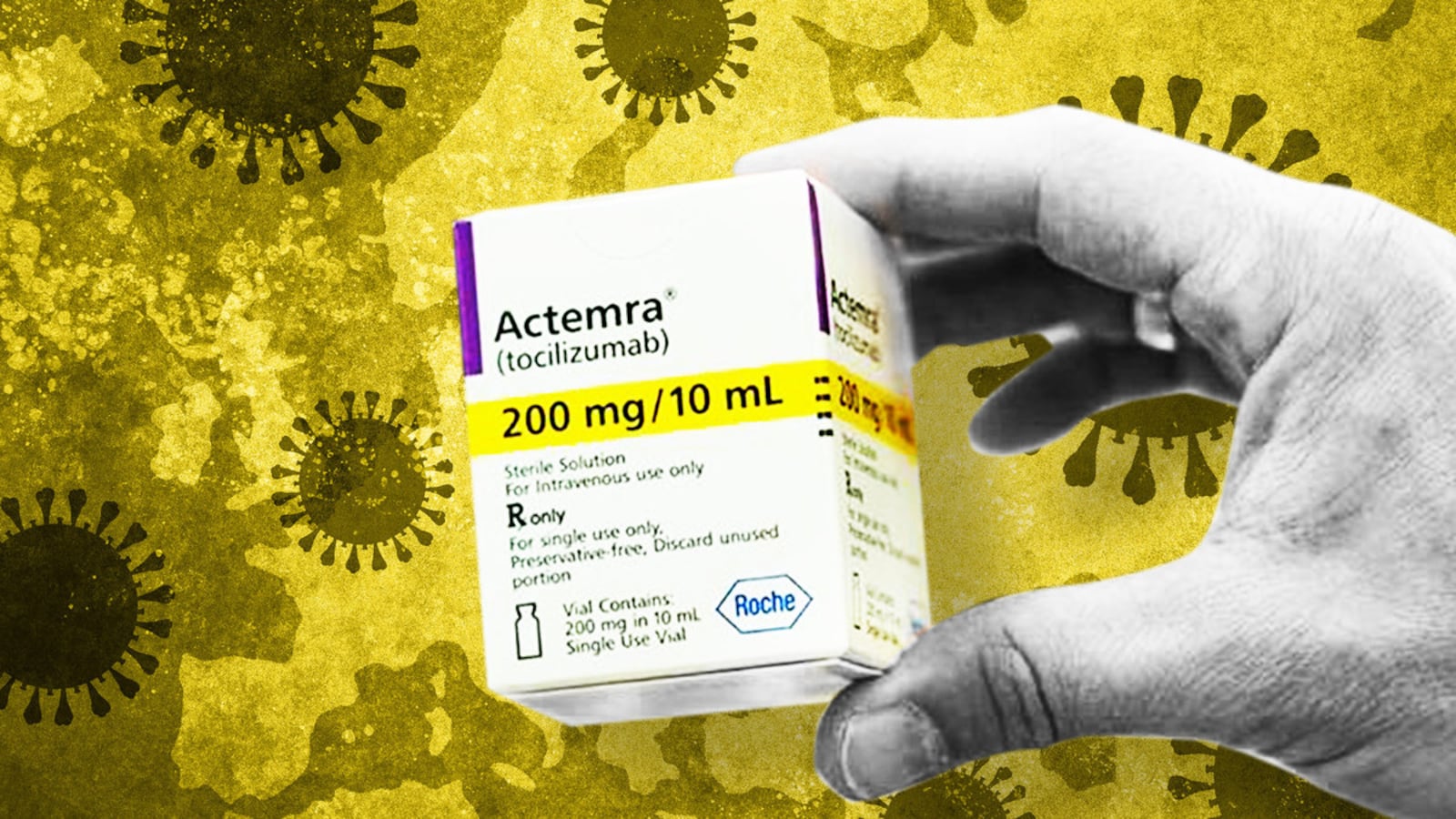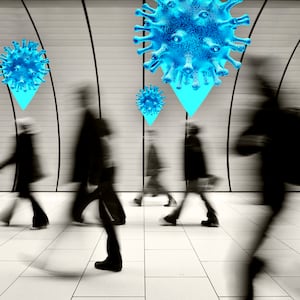A South San Francisco biotech company is trying to determine whether an arthritis drug could help treat COVID-19. It’s way too soon to say for sure, but there are signs the firm might be onto something.
Extra emphasis on might. There’s still a lot we don’t know about SARS-CoV-2 and the disease it causes. We know even less about effective treatments.
On March 23, Genentech got the Food and Drug Administration’s approval to begin testing the drug tocilizumab on COVID-19 patients. The company said it administered its first treatments on April 3. In all, Genentech plans to treat 330 patients at 55 clinics all over the world, including 15 in the United States.
“The primary and secondary endpoints include clinical status, mortality, mechanical ventilation, and intensive care-unit variables,” Shirley Dang, a Genentech spokeswoman, told The Daily Beast.
In other words, the company is looking at whether people with COVID-19 can breathe better and stay out of the ICU—and the morgue—at a higher rate than patients who don’t take the drug.
Around 6 percent of Americans known to have contracted COVID-19 have died. It’s more lethal in Europe, where as many as 15 percent of patients have died.
Not everyone who gets infected with the novel coronavirus develops COVID-19. Many people carry the virus without showing any symptoms at all.
In many of the most severe cases, which are most common in —although not at all exclusive to—the elderly and people with compromised immune systems, COVID-19 presents as a severe form of pneumonia. An infection of the lungs.
But it might also kill you by provoking an overreaction by your immune system. Your body could detect the SARS-CoV-2 virus and produce an overabundance of cytokines, which are chemicals that guide a healthy immune response.
Stoked by the “cytokine storm,” your immune cells could attack not only the virus but healthy tissues as well. That could lead to catastrophic organ failure.
An overactive cytokine response is one factor that made the influenza strains in the 1918 pandemic so deadly, John Aberth, a historian of pandemics, told The Daily Beast.
Tocilizumab didn’t exist in 1918, but it does now. And it maybe, just maybe, could calm the COVID-19 immune-response storm. Assuming, that is, the cytokine-storm problem really is a factor in COVID-19 mortality.
To be clear, that’s a big assumption.
“Toci,” as some scientists call it, is a “humanized anti-interleukin-6 receptor antibody.” In plain English, it’s a genetically engineered copy of a human antibody that can reduce inflammation. In the early 2000s, scientists discovered that toci works pretty well on patients with rheumatoid arthritis, which itself is the result of an overactive immune system attacking the joints.
It makes some sense that toci would work on COVID-19, as well. “I would not be surprised if there were good effects dampening down the cytokine storm,” David Ostrov, a University of Florida virologist, told The Daily Beast.
Chinese researchers were the first to try out toci on COVID-19 patients, but those efforts waned as the pandemic receded in China in February and March, Steve Jameson, a University of Minnesota immunologist, told The Daily Beast. Now there are other trials underway in addition to Genentech’s.
Confirming that toci works could take a while, but the fact that it apparently hasn’t made anyone sicker is encouraging. “I think it is too early to be confident of positive effects, but it is good that we have not heard about adverse reactions,” Ostrov said. “We will probably know much more in the coming months.”
But it’s possible that toci works… and doesn’t actually help. That’s because we don’t know for sure whether the elevated cytokines we see in COVID-19 patients are a problem.
“The issue with all these correlations is cause and effect,” Jameson said. A cytokine storm could be the result of your body belatedly reacting to a serious threat with an equally serious immune response, Jameson explained. If that’s the case, the cytokine storm is a good thing, and it’s not the reason some COVID-19 patients die.
One way to tell whether the cytokine storm helps or hurts people with COVID-19 could be to precisely track your cytokine response against your viral load. Does the former seem to help the latter? “Eventually finding the relationship between viral load and cytokine response will be key,” Jameson said.
The answer might lie between the extremes, Jameson added. “We know too little about severe COVID-19 to say whether more people die because of an impaired immune response rather than an over-exuberant one,” he said. “Probably it’ll emerge that there are some of each.”
And that, Jameson said, could end up “putting pressure on clinicians ... to tailor treatment, once we identify reliable markers for the different ways the disease can develop.”
In other words, even if it works, toci almost certainly isn’t a cure-all. The coronavirus is too clever, and at this point too poorly understood, for us to hope for easy treatments.
Editor’s note: This story has been updated to correct the city in which Genentech is based.







